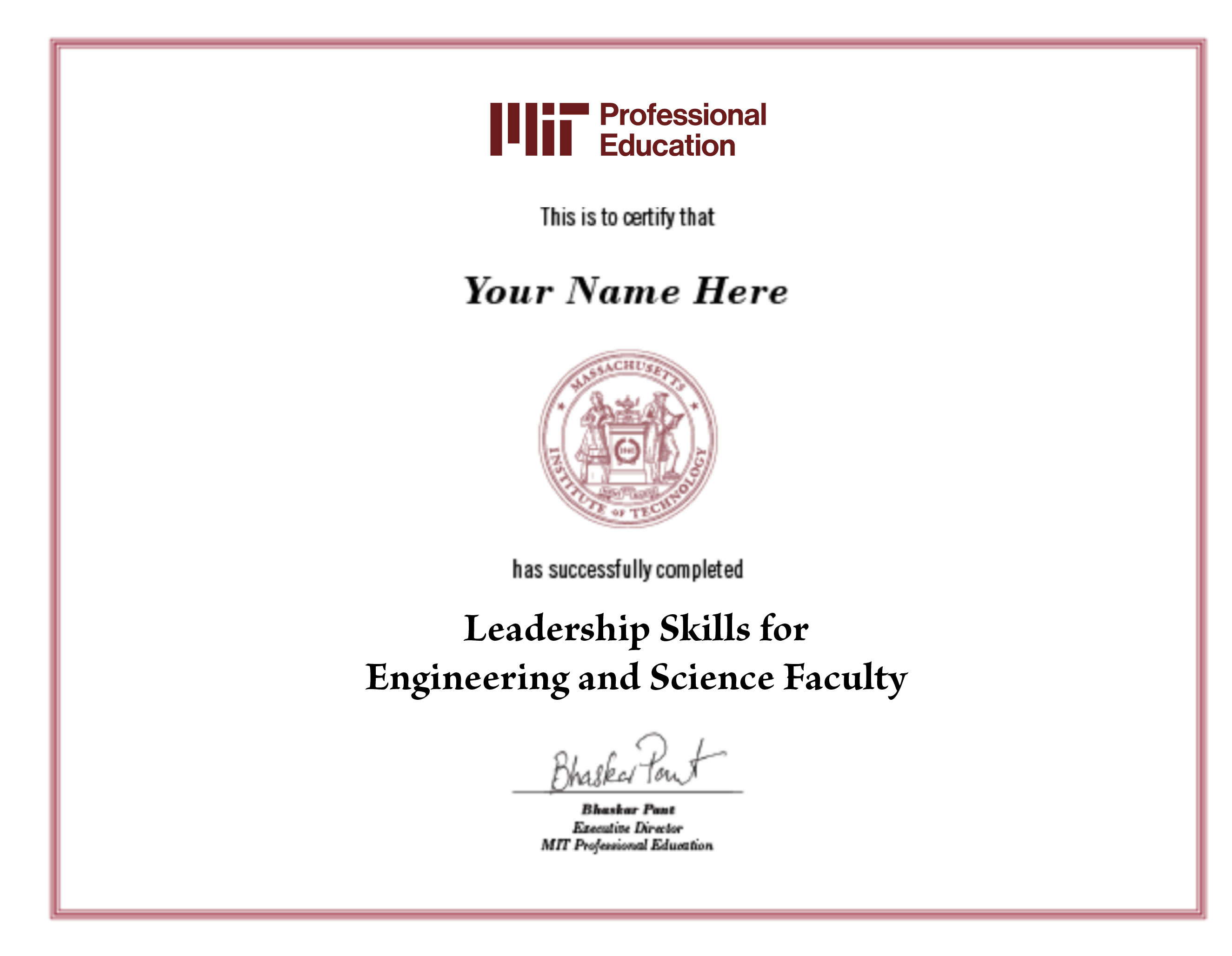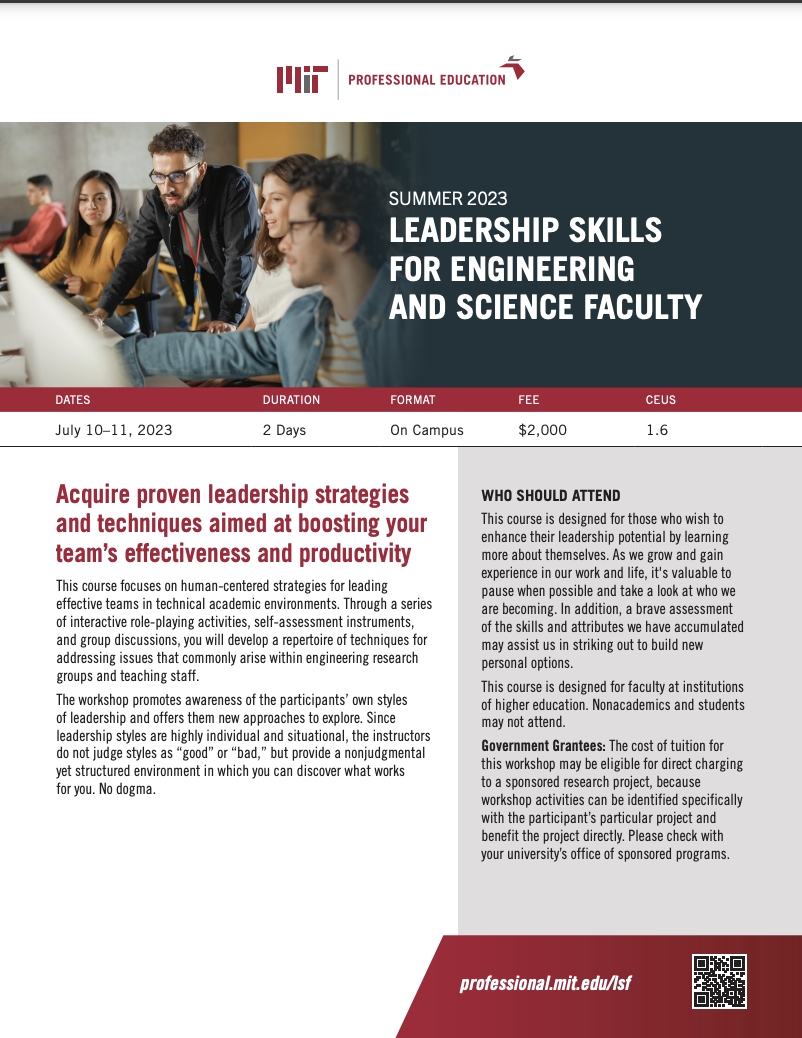Master a repertoire of techniques for addressing challenges that commonly arise within engineering research groups, teaching staff, and other technical academic environments. In this two-day, in-person course, designed for senior and junior faculty, department heads, and higher education administrators involved in engineering and the sciences, you will acquire proven leadership strategies and techniques aimed at boosting your team’s effectiveness and productivity.
The type of content you will learn in this course, whether it's a foundational understanding of the subject, the hottest trends and developments in the field, or suggested practical applications for industry.
How the course is taught, from traditional classroom lectures and riveting discussions to group projects to engaging and interactive simulations and exercises with your peers.
What level of expertise and familiarity the material in this course assumes you have. The greater the amount of introductory material taught in the course, the less you will need to be familiar with when you attend.




